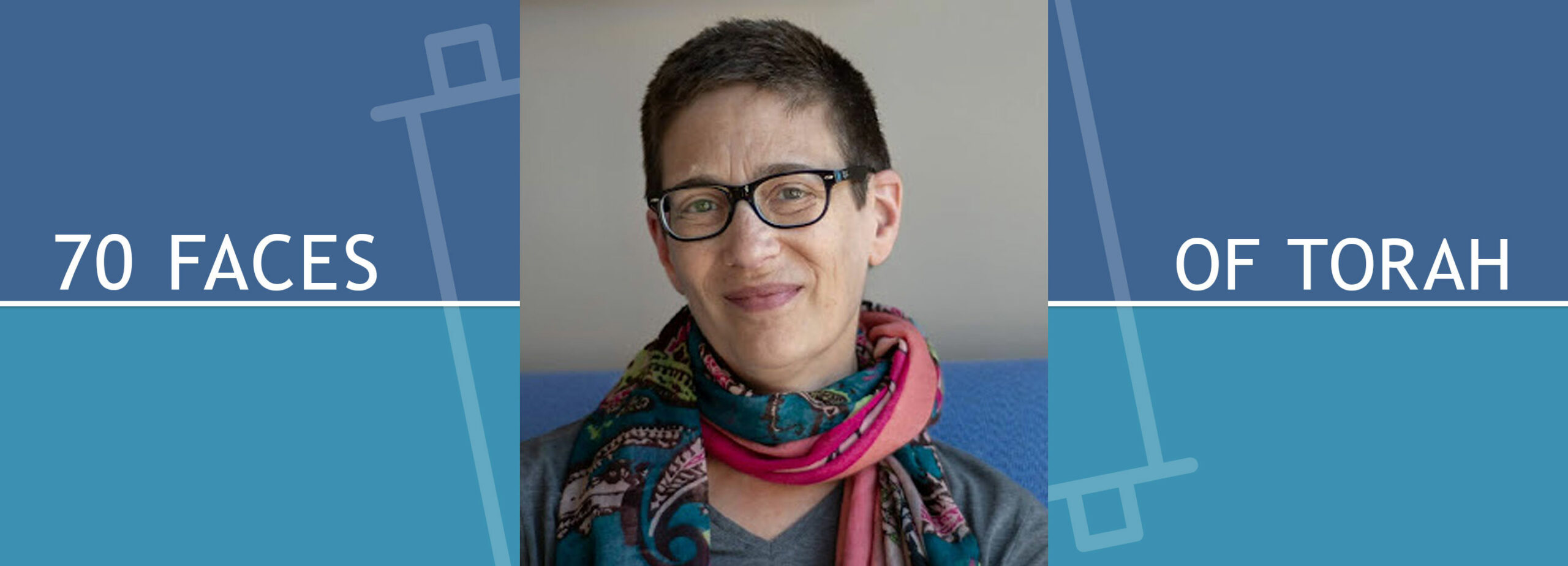Deuteronomy Meditation on Wild Things

Parashat Ha’azinu Deuteronomy 32:1-32:52
The night Max wore his wolf suit and made mischief of one kind and another, his mother called him WILD THING! And Max said, I’LL EAT YOU UP! So he was sent to bed, without eating anything.
For decades, Maurice Sendak’s perfect book, Where the Wild Things Are successfully disguised itself to me as a children’s book. Lately I have come to realize it is a work with profound theological implications, a mother-son journey of teshuvah—from sin and error, to repentance and return. Viewing it through the lens of the overlap of Parashat Ha’azinu and this season of reflection and repair, we find some key teachings for life.
In Ha’azinu, Moshe offers his final, poetic speech to the Israelites, just before his death. In it he draws the contrast between God’s perfection and his fellow searchers’ heartbreaking imperfection. Of God, Moshe says:
הַצּוּר תָּמִים פָּעֳלוֹ כִּי כָל־דְּרָכָיו מִשְׁפָּט אֵל אֱמוּנָה וְאֵין עָוֶל צַדִּיק וְיָשָׁר הוּא
The Rock Whose deeds are perfect, all of Whose ways are just.
God of faith Who is ever just, righteous and forthright. (Deuteronomy 32:4)
The Israelites, meanwhile, are deemed unworthy children. They—our ancestors—turn away from God, dabble with false gods, vex God with zarim and to’evot (alien gods and abominations). And, according to Moshe’s song—more of a rage aria really—God can take ruthless vengeance at any moment. Sound familiar?
Think of that night Max wore his wolf suit and journeyed off to where the wild things are. His exile with the wild things was a kind of straying after false gods, and perhaps even—when he becomes king of the wild things—making a false god of himself. To be honest, he enjoys that status for a while: frolicking with the wild things, wearing his “King of the Wild Things” crown with pride and pleasure. He is riding high, the five-year-old who has everything.
And yet, something is missing in his fantasy of a glorified existence. He is isolated and alone, disconnected from what truly matters. In Deuteronomy 32:18 we read:
צוּר יְלָדְךָ תֶּשִׁי וַתִּשְׁכַּח אֵל מְחֹלְלֶךָ׃
You have neglected the Rock of your birth,
forgotten the God who labored with you.
Like the Israelites, Max has alienated the parent figure that has been his steadfast rock throughout the journey. When he finally gets real with himself, Max realizes that all the attention and status and power of being King of the Wild Things turns out to be an empty attainment. It cannot mask his longing to be close to someone who truly knows and loves him.
Much as this season teaches us to fear God, it also invites us to love. Even the God of Unetaneh Tokef, the God Who decides who will live and who will die, has that soft side, for we know that repair, reflection and righteousness diminish the harshness of the decree. And that God is slow to anger and ready to forgive. This plaintive line from Unetaneh Tokef says it best:
וְעַד יוֹם מוֹתוֹ תְּחַכֶּה לוֹ אִם יָשׁוּב מִיַּד תְּקַבְּלוֹ
And until their dying day, You wait for them.
If only they return, You accept them back unhesitatingly.
This is the primary connection that Max longs after when he finally realizes that he wants to be where someone loves him best of all. This sweet image of a patient God leaving the light on is a beacon of faith and inspiration. Like Max’s mother, the liturgy of the High Holidays depicts God seeing our faults and lashing out with impatience or even fury. Yet there is great tenderness in this relationship too. The phrase Avinu Malkeinu which we recite over and over in this season reminds us of that duality—Avinu Malkeinu: our parent, our ruler—the One who both judges us and loves us.
And Max, the king of all wild things was lonely and wanted to be where someone loved him best of all. Then all around from far away across the world he smelled good things to eat, so he gave up being king of where the wild things are.
Max stepped into his private boat and waved goodbye, and sailed back over a year and in and out of weeks and through a day and into the night of his very own room where he found his supper waiting for him.
And it was still hot.
Naomi Gurt Lind (she/her) is a fifth-year rabbinical student at Hebrew College and the editor of the 70 Faces blog. Additionally, she serves as spiritual leader at Temple Ahavat Achim in Gloucester. Apart from her studies, teaching, and leading, she plays Bananagrams with her family and bakes a legendary challah. Subscribe to her Rosh Hodesh newsletter at tiny.cc/NGL-Subscribe.
Meet Naomi and other student and faculty at one of our fall open houses, Ta Sh’ma (Come & Hear) November 18 (in-person) or online (Dec. 8). Learn more and register.
Explore Graduate Programs Tamid Adult Learning Classes Support Our Work


